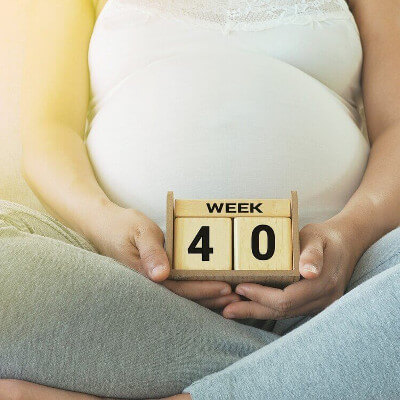Everything you need to know about the dates of maternity leave
14/02/2019 by Hicham HMICHE

14/02/2019 by Hicham HMICHE

What is referred to as this leave in everyday language is actually two distinct rest periods, separated by the birth of the child. As a first step, the legislation therefore provides for prenatal leave: this is the period before birth. Then comes postnatal leave, once the pregnant woman has given birth. The duration depends on the type of leave (prenatal or postnatal), but also on the number of children. Thus, if the mother is pregnant with her first child, she will first be able to benefit from 6 weeks of prenatal leave. Then, once her child is in fashion, she will be granted 10 weeks of postnatal leave. From the third birth onwards, the expected delays are more generous, given the mother's fatigue and the larger size of the family. The pregnant employee will be able to benefit from 8 weeks before the birth, two more weeks, while the postnatal leave will be extended to 18 weeks.
In the case of the birth of twins, the deadlines are of course adapted for the pregnant woman. Thus, the duration legally increases to 12 weeks for prenatal leave while postnatal leave is 22 weeks. If the number of children expected is three or more, prenatal leave is extended again to a total of 24 weeks. After the birth, the mother will be able to take a 22-week leave.
The dates of maternity leave mentioned above are part of the French legal framework. In other words, they correspond to a legal minimum. All women are entitled to it. Depending on the sector, collective agreements may extend these durations and decide to give the mother a longer rest period, either before or after the birth of the child (s). In addition, collective agreements may give additional benefits to the mother, for example with regard to the payment of the birth grant.
Would you like a free demonstration of our tool?
A complete and individual demonstration of our tool
I would like to book a demonstration14-day trial
No credit card required
In some cases, a pregnant woman is allowed to waive her maternity leave. While she can reduce the duration of her maternity leave, she is obliged not to work for a minimum of 8 weeks. Of these 8 weeks, at least 6 must be taken after the birth of the child.
In general, women entrepreneurs are more likely to want to limit the impact of their leave on their careers. For them, the same prohibition as set out above applies. Leave is not only about providing comfort or free time for a mother. If it exists and is so well regulated by law, it is above all to protect the health of the pregnant woman and her baby. Therefore, all pregnant women, regardless of their status, are advised to take parental leave, at least for the periods provided for in the legislation.
A pregnant woman can very well adapt the way she takes her leave, whether it is prenatal or postnatal. A mother who is pregnant with her first child has the right to postpone rest by moving a maximum of three weeks of prenatal leave after childbirth. With the pregnancy of the third child, the legislation becomes even more flexible. The mother is thus allowed to extend her prenatal leave by two more weeks taken on the postnatal leave.
A premature birth has no particular influence on the duration itself: it remains unchanged. On the other hand, rest time that has not been taken on prenatal leave will be automatically postponed to postnatal leave. The mother will therefore benefit from the same overall duration of the leave.
Pathological leave is granted to a pregnant woman on the decision of her attending physician in the event of a particularly difficult pregnancy. It corresponds to a total of two additional weeks of leave. The pregnant woman can take this leave at any time during her pregnancy. If the decision is taken to protect the pregnant mother by resting her two weeks before the start of prenatal leave, she will have to take sick leave. The request can be addressed to the attending physician. The leave will then normally follow this shutdown, as planned. Finally, please note that during maternity leave, the pregnant woman's employment contract is temporarily suspended. This means that the employee continues to contribute and accumulate her rights for paid leave. At the same time, she can benefit from the same seniority calculations as any other active employee.